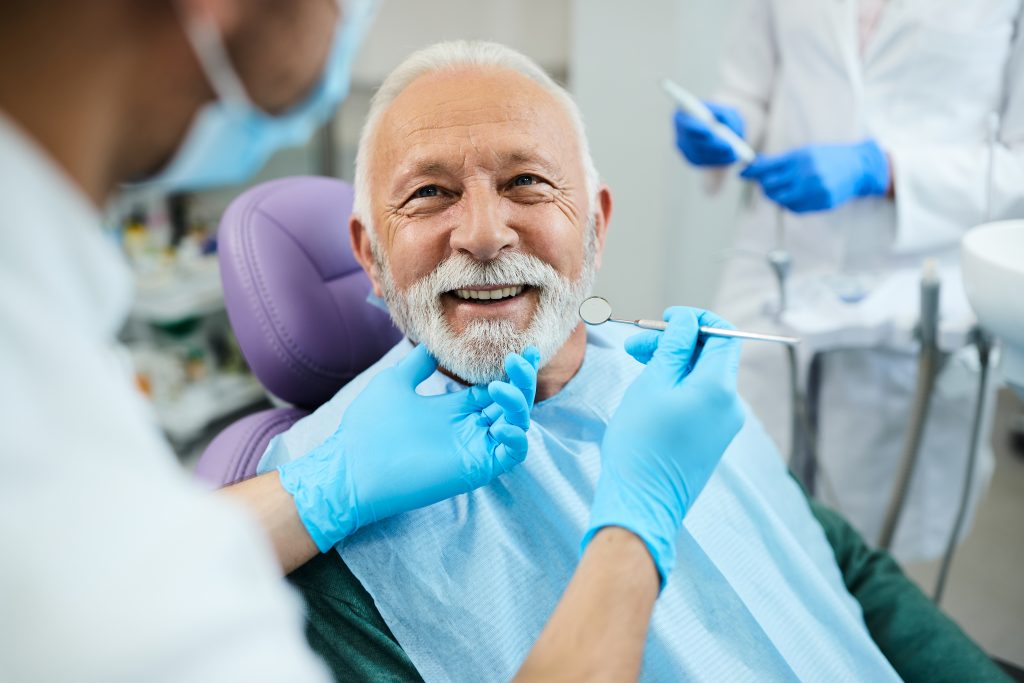Are you adjusting to life with dentures and wondering how it will affect your ability to eat your favorite foods? Eating with dentures may seem daunting at first, but with the right techniques and guidance, you can continue to enjoy a wide variety of foods without any discomfort or difficulty. As a trusted provider of dentures near me, we’re here to offer a comprehensive guide to help you navigate eating with dentures and get back to enjoying your favorite meals with confidence.
- Understanding Dentures: Dentures are custom-made prosthetic devices designed to replace missing teeth and restore the function and appearance of your smile. Whether you have partial or full dentures, they are carefully crafted to fit securely in your mouth and provide optimal support for chewing and speaking. At Mt. Brydges Clinic, our team of experienced dentists nearby specializes in creating high-quality dentures that are comfortable, functional, and tailored to your unique needs.
- Tips for Eating with Dentures: Transitioning to eating with dentures may take some time and practice, but following these helpful tips can make the process smoother and more enjoyable:
- Start with Soft Foods: In the beginning, stick to soft and easy-to-chew foods such as mashed potatoes, yogurt, scrambled eggs, and soup. As you become more accustomed to wearing your dentures, gradually reintroduce firmer foods into your diet.
- Cut Food into Smaller Pieces: To make chewing easier, cut your food into smaller, bite-sized pieces. This will help prevent your dentures from shifting or becoming dislodged while you eat.
- Chew Slowly and Mindfully: Take your time when eating and chew your food slowly and deliberately. Avoid rushing through meals, as this can increase the risk of discomfort or difficulty with your dentures.
- Use Both Sides of Your Mouth: Distribute the pressure of chewing evenly by using both sides of your mouth. This will help prevent uneven wear on your dentures and maintain their stability.
- Avoid Sticky or Hard Foods: While dentures are designed to withstand normal chewing forces, it’s best to avoid sticky or hard foods that can put excessive strain on your dentures and increase the risk of damage or dislodgement.
- Maintaining Your Dentures: Proper care and maintenance of your dentures are essential for ensuring their longevity and functionality. Be sure to clean your dentures daily using a soft-bristled toothbrush and denture cleaner to remove food particles and bacteria. Additionally, soak your dentures overnight in a denture solution to keep them clean and fresh.
- Seeking Professional Assistance: If you experience any discomfort, difficulty eating, or issues with your dentures, don’t hesitate to contact our dentist nearby for assistance. Our team at Mt. Brydges Clinic is here to provide expert guidance and support to help you adjust to eating with dentures and address any concerns or challenges you may encounter along the way.
In conclusion, eating with dentures is entirely possible with the right approach and guidance. By following these tips and seeking professional assistance when needed, you can enjoy your favorite foods and maintain a healthy and fulfilling diet with dentures. If you’re in need of dentures near me or have any questions about eating with dentures, contact us at Mt. Brydges Clinic. We’re here to help you smile confidently and live life to the fullest with dentures!

